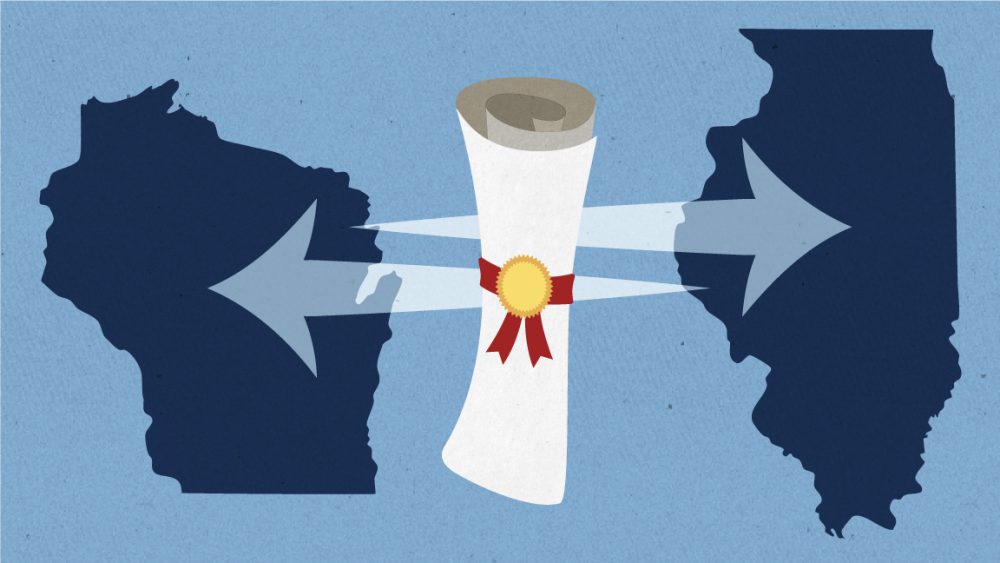
As teachers and educators, we are blessed to live in a nation that allows us to move across state lines while maintaining our careers with relative ease. Should you need to transfer teaching licenses to another state, here are the steps to take.
Contact the Department of Education
When transferring your teaching license from state to state, the best first step is to contact the Department of Education (DOE) in the state in which you plan to reside.
Each state is different, but luckily, the majority of state licenses transfer to other states through something called license reciprocity. Reciprocity means each state recognizes your host state’s teaching credential as proof you have your teaching license.
Should you plan to move states immediately after completing your licensure program, it is recommended that you obtain your home state license. Then apply to transfer your license to the state you plan to live and work.
The majority of states require licensure in order to teach in both the private and public sectors of education. Not having your license will substantially limit your choices as employers tend to hire solely licensed candidates. You’ll be better off if you get your license before applying for a teaching position and as a result, be more likely to land the job.
If you reside in Wisconsin, Concordia University offers an excellent education program that allows you to get your teaching license.
The NASDTEC Interstate Agreement
Nearly all states in the National Association of State Directors of Teacher Education Certification (NASDTEC) have signed the NASDTEC Interstate Agreement. This agreement gives certified teachers eligibility for certification in the state they seek to relocate. Oftentimes, NASDTEC will require additional testing and state-specific clearances in order to transfer your credential.
It is important to note that you need to be a licensed teacher in order to qualify according to NASDTEC’s requirements. Also, note that many states will offer a temporary provisional certificate valid for 1 to 5 years. Each state has its own agreements and you’ll need to take assessments for that state to transfer your license. Make sure to check each state’s requirements as there is not always an agreement.
Find a DOE Specialist
Knowing all this, the best advice is to contact a real person in the state you are moving to. Find a DOE specialist or Human Resources administrator in an in-state University and work with them directly. Throughout the process, you will find it easiest and quickest to work with the same individual specialist for all your questions. These experts are paid to help, and their guidance will prove invaluable.
When you are looking to transfer your license, some states require evidence of successful job performance. This would include teacher evaluations or a letter from a previous employer. Make sure to double-check with the school you are working with and what that state requires. When you connect with a DOE specialist, they will be able to guide you through that process and make it as smooth as possible.
The job market for a teaching professional is as competitive as ever. Anyways you can distinguish yourself from other candidates gives you an advantage. We offer a wide variety of options for educators, from licensure to graduate degrees. Not only will a graduate degree set you apart, but it will also provide you with advanced teaching techniques and knowledge.
This blog was originally published on September 15, 2015. It has been updated to reflect current information.